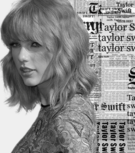TRENDING
In the News
On top of the world: GL talks to Chelsea Clinton about making a difference

Turn on the news or scroll through Twitter and you’ll get just a small glimpse of all the issues affecting our world right now, from violence in our streets to climate change on every continent. But who can keep up with it all? Chances are, you do realize that your biggest problems (like memorizing math theorems) would be considered a privilege to girls in many other parts of the world. You probably want to know more and you want to get involved...but don’t have a clue where to start.
This is called a knowledge gap, and it’s a huge obstacle facing teens today: The issues are big, complicated and sometimes scary; the resources can be conflicting and difficult to decipher. But according to author, activist and former first daughter Chelsea Clinton, it’s crucial that young people start getting involved now. The first step in making a difference? Becoming informed about the issues and why they matter.
In her new book It’s Your World: Get Informed, Get Inspired & Get Going (buy it here), Chelsea offers a comprehensive and straightforward overview of some of the biggest challenges facing our generation right now. We sat down with her to learn how girls can make a difference, starting today.
GL: Why is it so important that girls are informed and involved?
Chelsea Clinton: It’s the title of my book and it couldn’t be more true: It’s your world. I mean, sure, it’s my world and your parents’ world, too, but girls are the future of it. You can just let things happen to you and let other people decide—or you can shape what happens today and what happens tomorrow. You have the power to build the world you want to see: in your own home and your own neighborhood and, more broadly, in your country and every country.
That’s something we don’t hear a lot! We can’t vote, we can’t drive, there’s so much we’re told we’re too young to do. But you’re saying we aren’t just able, we’re empowered to start taking a stance on really big, really important issues.
Yes! Absolutely. I started to feel I could make a difference when I was 11 or 12 years old. It helped set me a course for the rest of my life. I felt that if I really understood what a challenge was, and could come up with a potential solution, then I had an obligation to try to make a difference. And I wouldn’t believe it so profoundly today if I hadn’t started engaging with the world as a kid.
So basically, there’s no time like the present—and the actions we take now will affect and shape the role we play in our world for the rest of our lives. But before you understood the big picture, how did you realize you had a duty to take on the world?
My parents did an amazing job of mak- ing sure I was always aware of how blessed I was; not just to be their child specifically, but because I had college- educated parents and I never had to worry about having a roof over my head, having food to eat, having clean water, having a school to go to or having them cart me around to softball games and ballet classes and piano lessons.
Easy things to take for granted.
Exactly—even though, unfortunately, they are things that aren’t a reality for many people in our community or in our world. So I realized that along with those blessings came a personal responsibility to get engaged. For me, it started mani- festing in my intense concern about the environment and climate change when I was a kid. I was very concerned about the oceans, about what was happening under the seas, even though I lived in a landlocked state with no ocean around. But I loved whales and coral and imagin- ing what was happening underwater— and, meanwhile, I was learning all about the degradation of life under the ocean. Really scary stuff.
So how did you deal with that concern when you were so far away from the issue?
My grandparents gave me a membership to the World Wildlife Fund, and that was great. It helped me feel like I was doing my small part from Arkansas to help protect the oceans. From there, I helped form a recycling program at my elementary school. It didn’t cost any money, only time and energy and effort. It was simple, but it was activism—activism that would have an impact on the health of our oceans regardless of how far away from them we were or how small the act of recycling seemed.
That’s awesome that you connected to a cause and were able to take action immediately. But what about girls who haven’t been struck by a particular issue? Where do we start?
Think about what you care about and, particularly, what has made you angry or frustrated about them recently. Whether it’s animals or some- thing that’s happening in your school or your town, take it and look at it from a broader perspective. It probably relates to so much else that’s going on in the world, and addressing it on a local level has the potential to make a global impact. That’s something I write a lot about in It’s Your World—how every- thing is connected, and how causes and reactions are sometimes really hard to discern from one another.
What do you do when someone challenges your belief about what matters to you and all of that confidence suddenly disappears?
You’ll find confidence in knowing the facts. And know that people are always going to have differing opinions about those facts! Just understand the difference. Every issue has facts attached to it: Here are the numbers, here is the reality, here is what science tells us. Opinions come into play when figuring out how best to solve those challenges.
With so much online, on TV and on social media, how can girls cut through the clutter?
Some authors and commentators aren’t as careful about separating truth from opinions, so it’s up to you to navigate and evaluate the sources you’re reading, lis- tening to and watching. Say to yourself, “Here’s what the facts really say, and here’s what I need to form my own edu- cated opinion.” That’s how you become comfortable in your views and can then articulate them to your friends or your parents or someone who might disagree with you. And when you do that, you become an advocate just by discussing it.
There are so many people who won’t want to discuss it, though—people who are completely apathetic and just don’t care about making a difference or say it won’t matter to the bigger picture. Suppose we’re organizing a canned food drive for the homeless in our town and some kid says, “There are millions of homeless people in the world and one little drive isn’t going to change that.” How do girls deal?
You say that one meal really matters to the person who receives it. And if we save one tree, that one tree really mat- ters to the people who live near it. You can tell that kid, “Maybe it doesn’t mat- ter to you, but it really matters to some- one else.” Nobody can argue with that.
What about the little voice inside our head that doubts our ability to make a change? Maybe we put our whole heart into organizing the best bake sale our school has ever seen, but then what? We don’t necessarily see the results and it’s like...ugh.
This is exactly why feedback loops are great. Look at Heifer International, an organization that provides animals like cows and chicks to families so they can have both a nutritional source and income from the milk or eggs. When you support Heifer, you can actually follow the family who receives the goat or the chicken that you helped sponsor. It enables you to feel like, “Wow, I made a real difference. And, of course, there’s still a huge problem with hundreds of millions of people who don’t have enough to eat around the world, but I know that one family has enough to eat. And if we can just have more of those families, that really starts to move the needle, and I was part of moving that needle.”
Right! Seeing progress is awesome. It’s like, “I helped feed families who were hungry and that’s incredible, what’s next?” But then there are so many other problems that need to be tackled, and it can get exhausting and overwhelming to think about.
Just remember that it’s totally fine to pull the covers over your head for a little bit...provided it’s not forever! We all need to recharge our physical and emotional and mental stores, whether it’s reading a good book, watching your favorite TV show, going to a concert or just hanging with your friends and enjoying your life and not thinking about everyone else for a night. Don’t feel guilty about that!
It’s all about the balance.
Life is a composition of every part of who we are. Hopefully being concerned about the world and engaging with it is part of who you are. And just because you take a break doesn’t mean you’re completely disconnecting from that. You’re always observing and feeling. But every time you’re frustrated or angry about something, you will hope- fully use that to make a difference. It’s OK if some days or weeks or even years, you care more about one issue than another issue. You change. You grow. And, hopefully, all the ways you make a difference will change and grow, too.
Check out the rest of our October/November 15 Brave Girl Issue on stands now, or grab it online here.
POSTED IN GL Exclusive, Goal Getter, Get Inspired, charity, In the mag, Oct/Nov 2015
check these out!
you might like these
-
 Everything you need to know about the April 8 solar eclipse, straight from NASA
Everything you need to know about the April 8 solar eclipse, straight from NASA
-
 Our favorite moments from Coachella weekend one
Our favorite moments from Coachella weekend one
-
 Taylor Swift just surprised us with a double album! Our first impressions of The Tortured Poets Department: The Anthology
Taylor Swift just surprised us with a double album! Our first impressions of The Tortured Poets Department: The Anthology
-
 Our favorite lyrics from The Tortured Poets Department
Our favorite lyrics from The Tortured Poets Department

 become a contributor
become a contributor


















